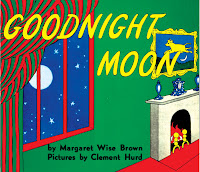 Everyone's got a bottom, Tess Rowley and Jodi Edwards
Everyone's got a bottom, Tess Rowley and Jodi Edwards (produced by Family Planning Queensland)
Here is a children's book that is excellent, well written and helpful - yet you wish it never had to be made.
This story about Ben, his brother and sister introduces the idea of self-protection and personal safety in a positive and clear way.
It introduces the family and how they have fun together. Then it talks about how kids learn to look after themselves - brush their teeth, etc. It moves onto to explain that they learn to look after our own bodies, giving proper names for private parts (helpfully explaining the differences between girls and boys). It explains the idea of privacy well, and the idea of rules about bodies:
Throughout the book on most pages it has the same refrain:
You will probably find it hard to read it to your kids. It is well worth doing, but it raises so many ideas in your mind that you may find it tough (especially if you have a personal history of abuse).
However, it's a resource that is needed and for many families it will be a helpful way to start conversations with their children about their personal safety, as well as possibly adopting this family's house rules for your own. It matched almost everything I have wanted to explain to my kids, but did in a much better way (much more positive and much less scary) than anything I would have come up with.
One note though - if you have it in your house, do not leave it around for children to read on their own - the back page has detailed instructions for parents/caregivers, much of which could be alarming for a child to read. This is definitely a book to keep high on a shelf and then read with them and talk about.
This story about Ben, his brother and sister introduces the idea of self-protection and personal safety in a positive and clear way.
It introduces the family and how they have fun together. Then it talks about how kids learn to look after themselves - brush their teeth, etc. It moves onto to explain that they learn to look after our own bodies, giving proper names for private parts (helpfully explaining the differences between girls and boys). It explains the idea of privacy well, and the idea of rules about bodies:
Mum and Dad have given us a rule about touching. Nobody can touch our bodies including our private parts without good reason.What I really liked was that it said that we don't need to keep secrets about bodies "Secrets can be about surprises and presents. We can talk about our bodies feeling safe and feeling hurt."
If someone bigger or older than me wants to touch or see my private parts or show me theirs, that is not ok. I think that is rude.
It might be a person that I know and like. It is still not ok...
Throughout the book on most pages it has the same refrain:
From our head to our toes,My kids were chanting this by the end of the first reading, so the idea at least caught on.
We can say what goes.
You will probably find it hard to read it to your kids. It is well worth doing, but it raises so many ideas in your mind that you may find it tough (especially if you have a personal history of abuse).
However, it's a resource that is needed and for many families it will be a helpful way to start conversations with their children about their personal safety, as well as possibly adopting this family's house rules for your own. It matched almost everything I have wanted to explain to my kids, but did in a much better way (much more positive and much less scary) than anything I would have come up with.
One note though - if you have it in your house, do not leave it around for children to read on their own - the back page has detailed instructions for parents/caregivers, much of which could be alarming for a child to read. This is definitely a book to keep high on a shelf and then read with them and talk about.




















